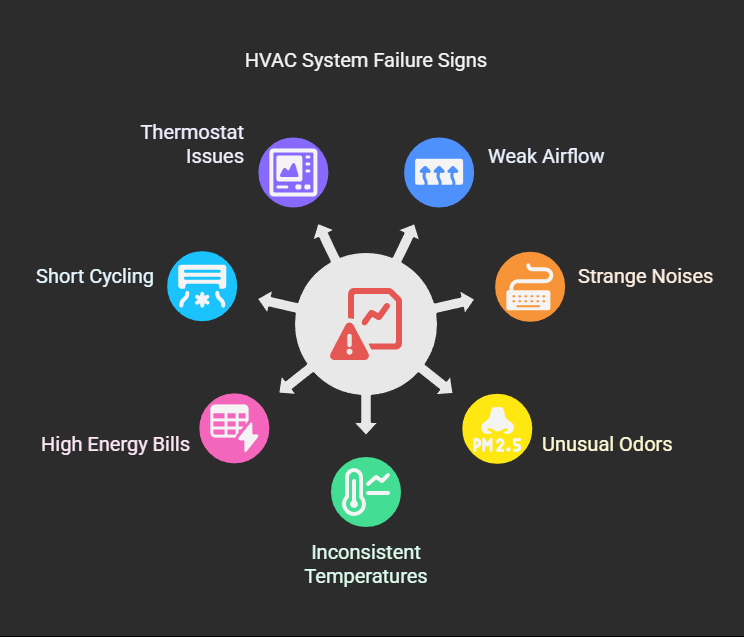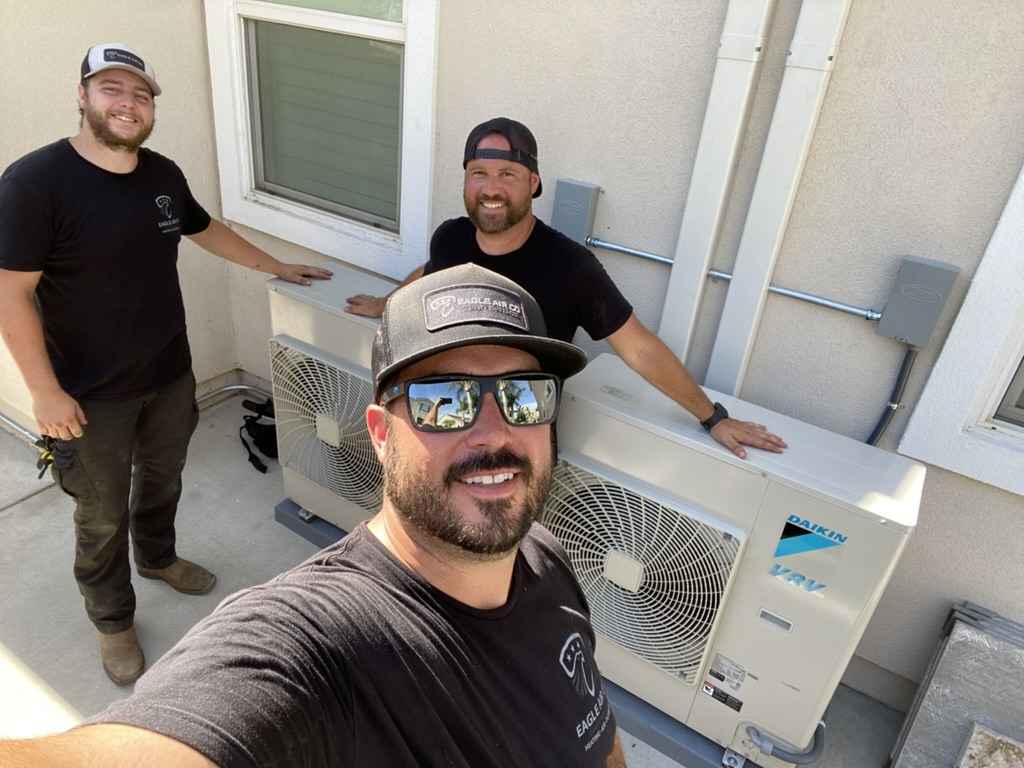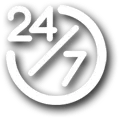HVAC Troubleshooting 101: Diagnose Problems Before Summer Melts You
Introduction

When the sun is blazing and temperatures soar into triple digits, your air conditioner isn’t just a luxury — it’s survival. Yet, too often, homeowners discover HVAC problems only when their system completely shuts down in the middle of a heatwave.
Fortunately, with the right knowledge, you can spot the warning signs of HVAC trouble before your system fails — saving you from sweaty nights, emergency repair costs, and unnecessary stress.
In this guide, we’ll walk you through the early symptoms of HVAC failure, basic troubleshooting steps you can take, and when it’s time to call in a professional. Stay ahead of the heat and keep your cool this summer!
Why HVAC Systems Fail When You Need Them Most
Your HVAC system works hardest when you need it the most — right in the middle of the summer’s most intense heat. Unfortunately, that’s also when hidden problems have a way of showing up at the worst possible moment.
Here are some of the most common reasons HVAC systems fail during peak season:
- Neglected Maintenance: Dirt, dust, and debris can clog critical components. Without regular cleaning and inspections, your system struggles under heavy demand.
- Age and Wear: Most HVAC units have a lifespan of 10–15 years. Older systems lose efficiency and are far more likely to break down when pushed to their limits.
- Minor Problems Left Untreated: Small issues like refrigerant leaks, worn belts, or electrical faults can spiral into major failures if not caught early.
- Extreme Weather Stress: Intense heat, combined with dust storms and high humidity during monsoon season, puts an extra load on HVAC systems, wearing them down faster.
Understanding these stress points helps you appreciate why proactive care isn’t just a good idea — it’s essential.
7 Early Signs Your HVAC System Is About to Fail
Your HVAC system often gives you warning signs before it completely breaks down. Paying attention to these symptoms can save you from costly repairs — or worse, a full system replacement during the hottest days of the year.
Here’s what to watch for:

1. Weak Airflow from Vents
If the air coming out of your vents feels weak or barely noticeable, it could signal a clogged air filter, blocked ductwork, or even a failing compressor. Weak airflow is a red flag that your system is struggling to perform efficiently.
2. Strange Noises During Operation
HVAC systems should hum quietly. If you hear grinding, squealing, banging, or rattling sounds, it’s likely a mechanical problem — like loose parts, worn belts, or a damaged blower motor — that needs professional attention.
3. Unusual Odors (Musty, Burning)
A musty smell might indicate mold growth inside your ducts or unit, while a burning smell could mean electrical components are overheating. Both are serious and shouldn’t be ignored.
4. Inconsistent Temperatures Room-to-Room
If some rooms feel like saunas and others feel ice-cold, it could be due to ductwork issues, poor insulation, or thermostat malfunctions. Inconsistent temperatures usually signal airflow or system regulation problems.
5. Higher Than Usual Energy Bills
A sudden spike in your energy bill without an obvious reason often means your HVAC is working overtime to maintain your set temperature — possibly due to internal wear, refrigerant leaks, or clogged components.
6. Short Cycling (AC Turning On and Off Frequently)
When your AC unit constantly turns on and off in short bursts, it’s struggling to regulate indoor temperature. Short cycling can wear out critical components faster and usually points to a deeper mechanical or sensor issue.
7. Thermostat Not Responding Properly
If your thermostat settings don’t match your home’s actual temperature, or if the system isn’t responding to adjustments, there may be a problem with the thermostat itself — or it could signal larger HVAC control issues.
How to Diagnose Common HVAC Problems at Home
While some HVAC issues require a professional’s expertise, there are a few simple troubleshooting steps you can take yourself before calling in the pros.
Here’s a quick diagnostic checklist to help you assess potential problems:
- Inspect Your Air Filter:
- A dirty or clogged air filter restricts airflow and forces your system to work harder. If it looks dusty or gray, replace it immediately. A clean filter can often resolve weak airflow or uneven cooling.
- Check the Outdoor Unit:
- Head outside and look at your condenser unit. Clear away any debris like leaves, dirt, or branches that may be blocking airflow. Make sure the coils aren’t covered in dust or grime.
- Listen for Strange Noises:
- Run your system and listen carefully. Grinding, squealing, or rattling sounds often hint at loose or worn parts. Catching odd noises early can prevent bigger mechanical failures.
- Feel the Air from Your Vents:
- Is the air coming out cool and strong? Weak, warm, or barely-there airflow indicates something’s wrong — like refrigerant issues or compressor problems.
- Test Your Thermostat:
- Double-check your settings. Is it set to “Cool”? Does adjusting the temperature cause the system to kick on? Replace the batteries if it’s been a while — a simple thermostat glitch can cause big confusion.
⚡ Pro Tip:
If these basic checks don’t fix the problem — or if you spot ice buildup, smell burning, or hear loud banging — it’s time to call a licensed HVAC technician.
When to Call a Pro (and Avoid Bigger Repair Bills)

While basic troubleshooting can solve minor issues, there are times when trying to fix an HVAC problem yourself can actually make things worse — and more expensive.
Here are clear signs it’s time to call a professional:
- Ice Buildup on Coils:
- Ice forming on your indoor or outdoor coils usually means low refrigerant levels or airflow restrictions. Running the system with frozen coils can cause major damage to the compressor.
- Burning Smells or Electrical Odors:
- If you detect burning smells — like overheating plastic or rubber — shut off your system immediately and call for service. Electrical issues can be dangerous and lead to fires.
- Water Leaks Around Your Unit:
- Pooled water or moisture around the HVAC unit may indicate a clogged drain line or refrigerant leak. Both need expert repairs to prevent water damage and system failure.
- Complete Loss of Cooling:
- If your system is running but not producing cold air, it could be a sign of serious internal failure — like a bad compressor or refrigerant leak — which requires professional tools and diagnosis.
- Thermostat Errors or Failure:
- If replacing batteries and resetting your thermostat doesn’t fix erratic temperature control, there may be deeper system communication problems.
⚡ Why Acting Fast Saves You Money:
Catching and fixing small problems early can prevent massive, expensive repairs later. For example, repairing a minor refrigerant leak now costs far less than replacing a burned-out compressor later.
At Eagle Air Co., we’re ready to diagnose and fix your HVAC problems fast — so you stay cool without the stress (or sky-high repair bills).
Prevent Future Breakdowns with Seasonal Maintenance
Think HVAC emergencies are random?
They’re not. They’re usually the result of missed maintenance.
Staying ahead of problems is easier (and cheaper) than scrambling during a heatwave.
Here’s how seasonal HVAC maintenance saves you time, money, and stress:
Spot Problems Before They Get Expensive
Small issues — like low refrigerant or worn belts — are easy fixes when caught early.
Left alone? They can destroy your compressor, costing you thousands.
Slash Your Energy Bills
Dirt and wear make your system work harder — and spike your energy costs.
A freshly tuned HVAC runs smoother, cools faster, and uses less electricity.
Make Your System Last Years Longer
HVAC systems aren’t cheap.
Preventive maintenance can add 5–7 years to your unit’s lifespan by keeping everything clean, lubricated, and calibrated.
Keep Your Warranty Intact
Many manufacturers require proof of maintenance to honor repair warranties.
Skipping seasonal service could void your coverage, leaving you on the hook for costly fixes.
Final Thoughts: Stay Ahead of the Heat
Imagine it: It’s the middle of July, and your AC hums quietly in the background, doing exactly what it’s supposed to do. No rattling noises. No surprise shutdowns. Just cool, steady comfort inside while the desert sun blazes outside.
That kind of peace doesn’t happen by accident.
It happens when you stay one step ahead of HVAC trouble.
Here’s the big takeaway:
✅ Pay attention to your system’s early warning signs.
✅ Handle the easy fixes yourself — like swapping out filters and clearing vents.
✅ Trust the experts when things seem bigger than a DIY fix.
✅ Make seasonal maintenance a non-negotiable habit.
Good HVAC care isn’t just about avoiding emergency calls.
It’s about protecting your comfort, your budget, and your sanity — especially when Chino, California hits peak heat.
Ready to stay cool without the drama?
👉 Schedule your HVAC health check with Eagle Air Co. — and enjoy a worry-free summer.




